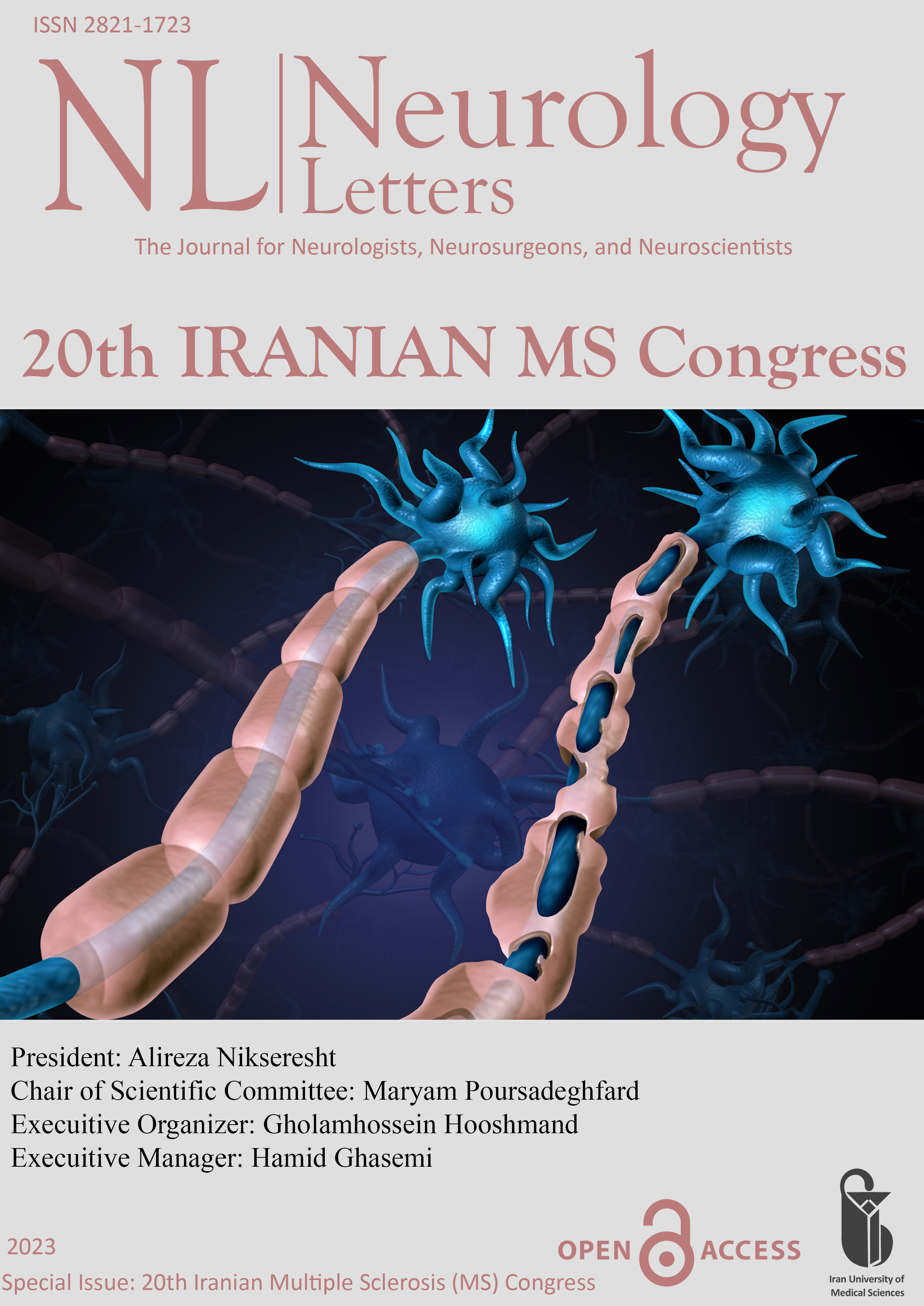Autoimmune glial fibrillary acidic protein (GFAP) astrocytopathy diagnosis and management: A case report study (ORP-28)
Document Type : Oral Presentation
Authors
1 Department of neurology, Mashhad university of medical sciences, Mashhad, Iran
2 Neurology department of Mashhad university of medical science, Mashhad, Iran
3 Cardiologist, Shahid Modarres Hospital, Shahid Beheshti University of Medical science, Tehran, Iran
Abstract
Background: Autoimmune glial fibrillary acidic protein (GFAP) astrocytopathy is a new autoimmune disease of CNS, that can be associated with other autoimmune diseases, also about 20% of them are related to neoplasms. This disease is usually single-episode and is resolved with a course of corticosteroids. But in recurrent cases, maintenance treatment is required, in which case the choice of treatment is challenging, especially if there is another autoimmune disease at the same time.
Case presentation: Here, a 37-year-old man is introduced who suffered from hallucinations and visual and auditory hallucinations along with a convulsion, followed by ataxia and headache. On examination, the patient had vitiligo lesions that had not been treated before. In the patient's MRI, typical GFAP astrocytopathy lesions were seen, and due to a period of recurrence of symptoms after initial treatment with corticosteroid pulse, the patient was treated with plasmapheresis and then rituximab.
Discussion: Considering that the patient's symptoms were initially purely psychiatric and he had a history of substance abuse, the diagnosis is at risk of misdiagnosis and the lack of diagnostic criteria for this disease makes the diagnosis more difficult. This patient had another treatment challenge due to the simultaneous presence of another autoimmune disease and the recurrence of symptoms after a course of treatment. Anyway, according to the experience of using anti-CD20 in similar autoimmune diseases, it seems reasonable to use rituximab in this patient.
Conclusion: Due to the rarity and novelty of this disease and the smaller number of patients who relapse, fewer studies have been published in this field, and choosing the appropriate treatment for these patients requires more and more detailed studies.
Keywords
 Neurology Letters
Neurology Letters
